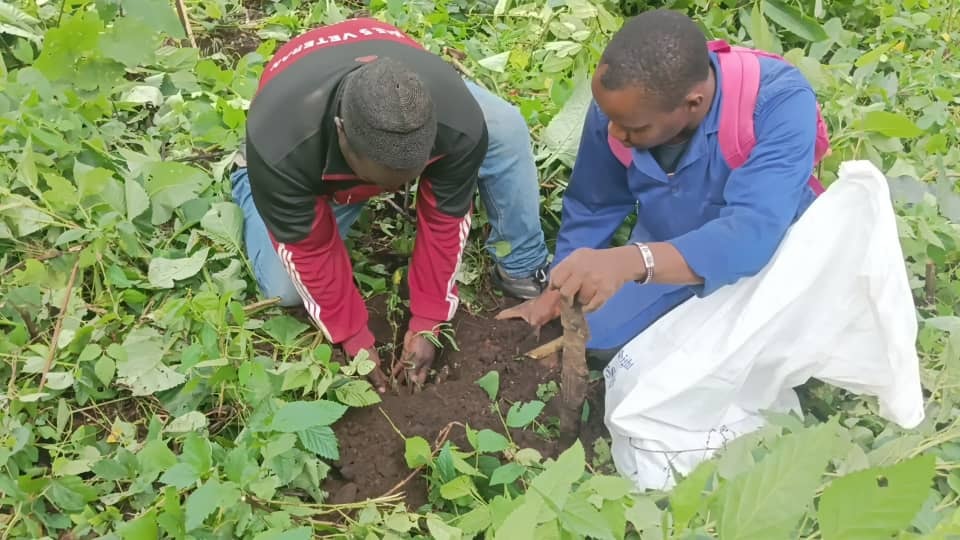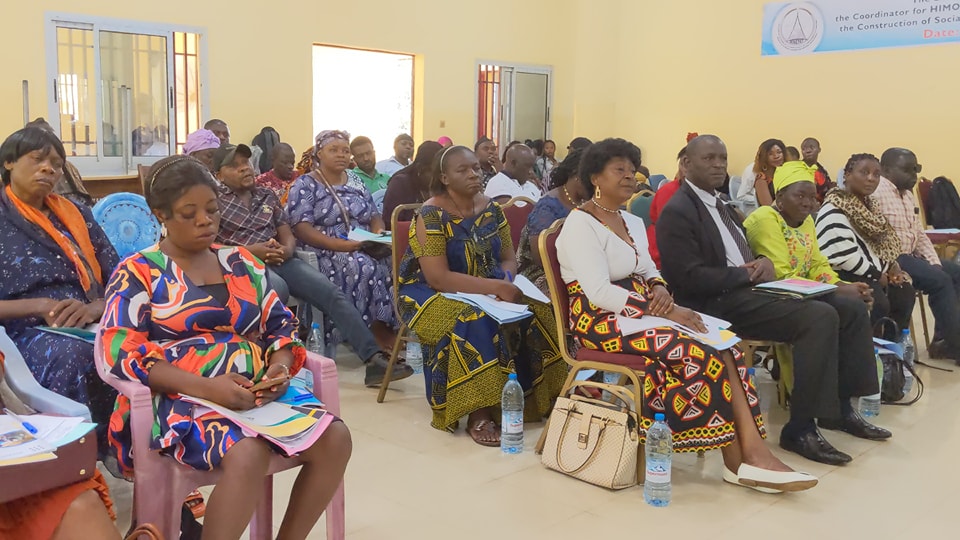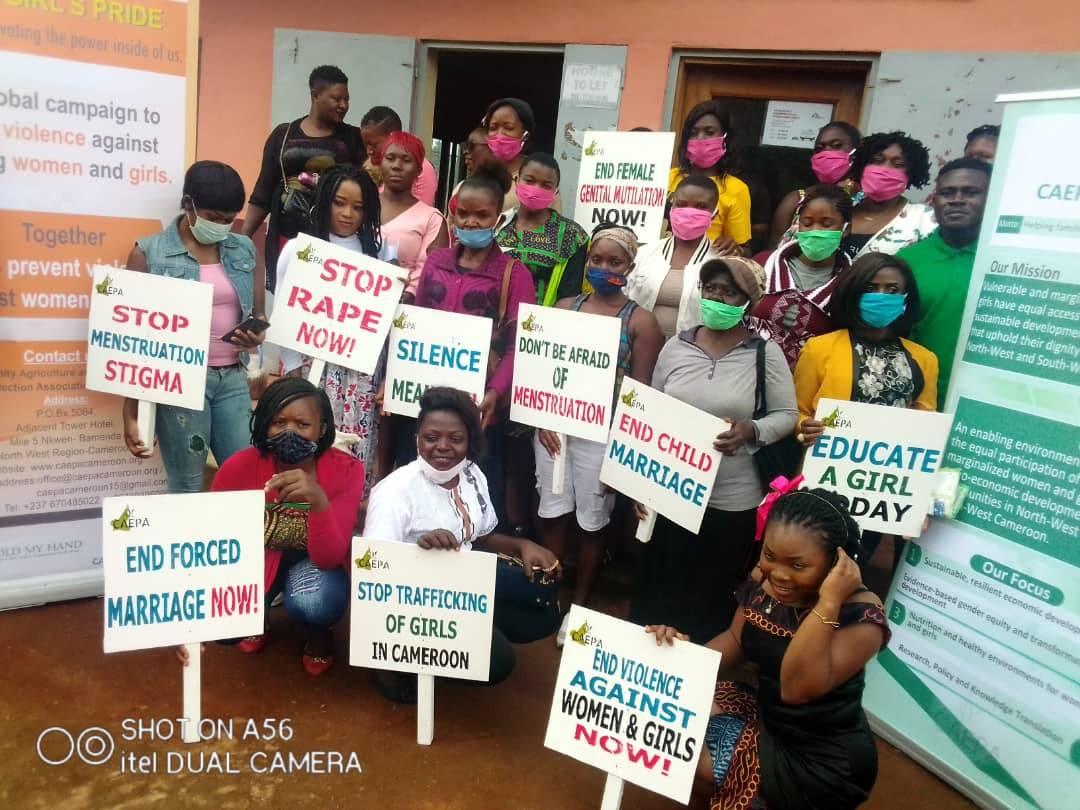An Exclusive: On The Landmarks CAEPA Has Recorded in 2024

As the year comes to a close and we draw the curtains on our activities in several communities in the North West Region of Cameroon, the communications department has taken time to conduct an interview on the successes that the organization has attained for the year. Our guest for this epistle, to provide information and statistics is the Programs Coordinator in the person of Fenwi Linda. She shall be taking us on this ride to have a wider peep into the activities CAEPA has been involved in from January to December 2024.
1. CAEPA runs a nursery where she nurses different plants (spices and trees). Can you tell us how this has been of help to the communities this year?
Let me begin with agroforestry. In the domain of agroforestry training for households, we have empowered over 50 local farmers with both knowledge and skills to enhance their agricultural practices, improving their crop yield and boosting their income. As regards tree planting and reforestation, our organization has been able to effortlessly promote environmental sustainability and combat land degradation. We have planted a total of 940 environmental friendly trees across Tubah council, Bamenda I,II, and III Sub Divisions. We have planted a good number of fruit trees, ornamental and water friendly species. This initiative which so far was done targeting degrading farmlands, schools, water catchment areas and public spaces, actually goes further to enhance the natural environment and ecological restoration which directly contributes to resilience adaptation and climate impacts. Moving over to the plants we have at the nursery, we have organized 4 training sessions with farming groups on kitchen gardening maintenance. We have also created 5 nurseries in 5 different communities in which seedlings from the nursery where distributed to women as a means of empowerment and encouraging home gardening. This helps to combat violence which these women face at home. Also, we distribute seedlings from our nursery to 150 identified women in the communities and did constant follow up to find out if the knowledge acquired from previous trainings were applied.

2. Has there been any sensitizations carried out this year?
Of course, we began the year by embarking on an extensive campaign on raising awareness about climate change and land rights for women in the North West Region. We have been able to sensitize over 3000 people on climate change and over 100 Mbororo women on land rights. We have engaged women on the decision making processes of disaster risk planning and policy development in disaster prevention and response. To widen our influence, we are working with adolescent girls aged 10-19 where we carried out GBV sensitization in Balikumbat Sub Division and we are presently doing same in various schools of Mezam Division.
3. What has been the impact of Community Dialogues carried out this year?
We have organized meetings with women groups in disaster prone areas such as areas exposed to flooding and landslides. This activity is aimed at identifying the extent to which these women have been affected by climate change, which they have done in the past and their proposed solutions. We empowered and encouraged these women to take up community led actions towards reducing the devastating impact of climate change and educated them on the need to get involved in community development planning.
4. What impact has the organization created in Tubah?
We have worked with the Mbororo community of Tubah Sub Division, engaging them on land restoration activities such as protecting their water catchment areas, engaging them in smart agricultural practices and pasture enhancement. These women were trained in random sessions to enhance their ability to identify and take opportunities, engage them in coaching sessions for personal development as well as land rights and processes.
📻 Radio Program Outreach
CAEPA leverages traditional media through radio programs, using Pidgin-English to reach 95% of the population with messages on GBV, climate change, sustainable agriculture, and women's land ownership.
5. Is there a means to which the general public can benefit from the rich package that CAEPA offers?
Yes of course, we do not only use the social media for advocacy but we are intentional about leveraging the advantage of the existence of traditional media in our community today. We are actively participating on the radio stations. We run a radio program where we inform and educate the general public on issues around GBV, Climate change, sustainable agricultural practices and land ownership for women. Given the Cosmopolitan nature of our location, we have decided to constantly make use of a language that is understood by 95% of the population, if not all and that is the pigin-english language, widely spoken by all.

6. Are there any further remarkable attainment from some of your running projects?
We have successfully distributed 500 essential learning materials to adolescent girls of ages 10-19 and have carried out sensitization with them on GBV. There has also been the creation of girls clubs in Balikumbat and Mezam Sub Division which lays for us, the foundation to provide menstrual hygiene kits to these girls across the region. We are currently setting up an IT Center for adolescent girls who have dropped out of school within the crisis situation. In one of our projects that was geared towards strengthening women's voices in disaster risk governance, we were able to produce local action development plans for Bamenda I,II,III Sub Divisions on climate risk prevention. We have handed over advocacy tools to regional authorities and we assure our beneficiaries that we are following up on the process of amendment.
Overall, I can say that with the capacity of staff I have, we are poised to be of even greater help to the community in the year 2025. All I have mentioned is just the process of scratching the surface. We are going into the next year with greater goals and aspirations to realize a world where women and young girls can thrive in their feminity.
